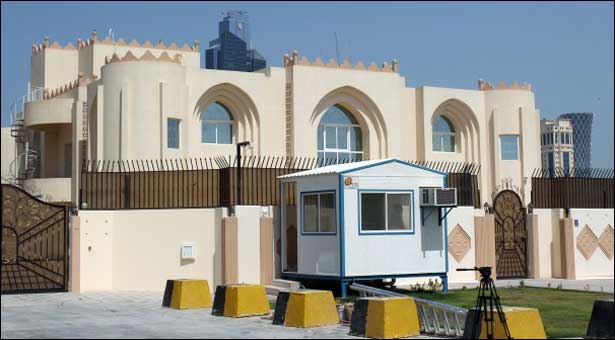
Sri Lanka‘s strongman leader Mahinda Rajapaksa will step down from his disputed position of the prime minister on Saturday, his son said.
Rajapaksa’s legislator son, Namal Rajapaksa, tweeted on Friday that his father will quit “to ensure stability of the nation”.
“Former president … Rajapaksa has decided to resign from the Premiership tomorrow after an address to the nation,” Namal said.
The South Asian island nation has had no functioning government for nearly two weeks and is facing the prospect of being unable to pass a budget for next year.
Pro-Rajapaksa legislator, Lakshman Yapa Abeywardena, said the former president decided to resign following a meeting with President Maithripala Sirisena, allowing the president to appoint a new government.
To ensure stability of the nation, Former President @PresRajapaksa has decided to resign from the Premiership tomorrow after an address to the nation. The SLPP with Frm President, SLFP & others will now work to form a broader political coalition with President Sirisena.
— Namal Rajapaksa (@RajapaksaNamal) December 14, 2018
“Unless the prime minister resigns, another prime minister cannot be appointed. But the country needs to face situations that it needs to face in January, a country cannot function without a budget,” Abeywardena told The Associated Press.
On Thursday, the country’s Supreme Court declared Sirisena’s decision to dissolve the parliament unconstitutional.
The top court also cancelled a snap election Sirisena had called for January 5.
#SriLanka #FakePM has ‘resigned’ from the post he was not legally entitled to hold. Finally #CoupLK is over. @MaithripalaS @RW_UNP pic.twitter.com/UGcxYoQlZe
— Harsha de Silva (@HarshadeSilvaMP) December 14, 2018
The top court’s ruling meant that the country was effectively without a government and heading for a shutdown in the absence of parliament voting for a budget for 2019.
Sri Lanka also has a foreign debt repayment of one billion dollars due in early January and it is unclear if it can be serviced without a lawful finance minister.
A separate court earlier this month ordered that Rajapaksa should not exercise the powers of the office he has claimed since October 26.
Bitter power struggle
Rajapaksa’s decision to back down signals an end to a crippling seven-week long power struggle in the country.
Sri Lanka’s political crisis began on October 26 when Sirisena abruptly sacked Prime Minister Ranil Wickremesinghe and appointed Rajapaksa in his place.
Rajapaksa failed to prove his majority in the 225-member parliament and was twice defeated in no-confidence motions on November 14 and 16, but refused to step down.
Wickremesinghe has also refused to step down since October 26, maintaining that his sacking was illegal. Sirisena repeatedly rejected appeals to re-appoint him as the prime minister.
Political sources now say Sirisena is likely to invite Wickremesinghe to form a new government over the weekend to end the power vacuum.
SOURCE:
Al Jazeera and news agencies












